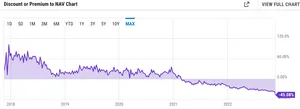On June 19, the Hong Kong-based crypto exchange Hoo announced that they would be pausing withdrawals for "24–72 hours" while they transferred some assets to top up their hot wallet.Since then, there has been little communication and a series of shady activities. According to HOO CEO Rexy Wang on Twitter on July 15, Hoo employee and former Binance head of security Fang Wenbin (known as "Top") "took advantage of his position at Hoo to delete the company system privately, causing everyone in the company to be unable to access the system, resulting in a temporary failure of the main domain name". Top replied to allege that, "Rexy himself has transferred most of the assets from the platform. Employee salaries and platform users cannot withdraw coins".
At some point after that, Wang made his Twitter private. Hoo's social media channels have been inactive. On November 18, the exchange website was replaced with a post that identified the "Hoo de facto controller", Xu Tong Hua, and said: "Currently all permissions for Hoo's wallet and website programs are controlled by Mr Xu, so please contact the official email if you have any questions."
Meanwhile, customers have been active on social media complaining about the apparent fraud, and some have formed an informal group pushing for legal action against Hoo.









